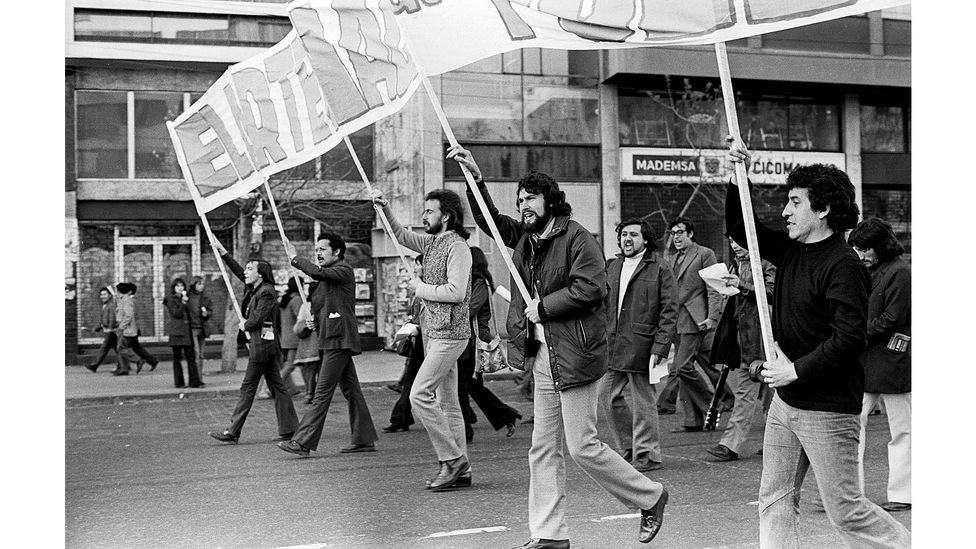V
Victor Jara named his last song after the place where he spent his final days: Estadio Chile, an indoor sports complex in Santiago. He wrote it on 16 September 1973, five days after a military coup led by General Augusto Pinochet brought down the socialist government of Chile’s president Salvador Allende. Jara had been arrested the day after the coup and held in the stadium that had become an ad hoc detention centre for around 5,000 supporters of Allende’s Popular Unity alliance.
More like this:
– The images that fought Fascism
– Powerful images of Hong Kong protests
– Pop music’s greatest philosopher
There are many conflicting accounts of Jara’s last days but the 2019 Netflix documentary Massacre at the Stadium pieces together a convincing narrative. As a famous musician and prominent supporter of Allende, Jara was swiftly recognised on his way into the stadium. An army officer threw a lit cigarette on the ground, made Jara crawl for it, then stamped on his wrists. Jara was first separated from the other detainees, then beaten and tortured in the bowels of the stadium. At one point, he defiantly sang Venceremos (We Will Win), Allende’s 1970 election anthem, through split lips. On the morning of the 16th, according to a fellow detainee, Jara asked for a pen and notebook and scribbled the lyrics to Estadio Chile, which were later smuggled out of the stadium: “How hard it is to sing when I must sing of horror/ Horror which I am living, horror which I am dying.” Two hours later, he was shot dead, then his body was riddled with machine-gun bullets and dumped in the street. He was 40.





